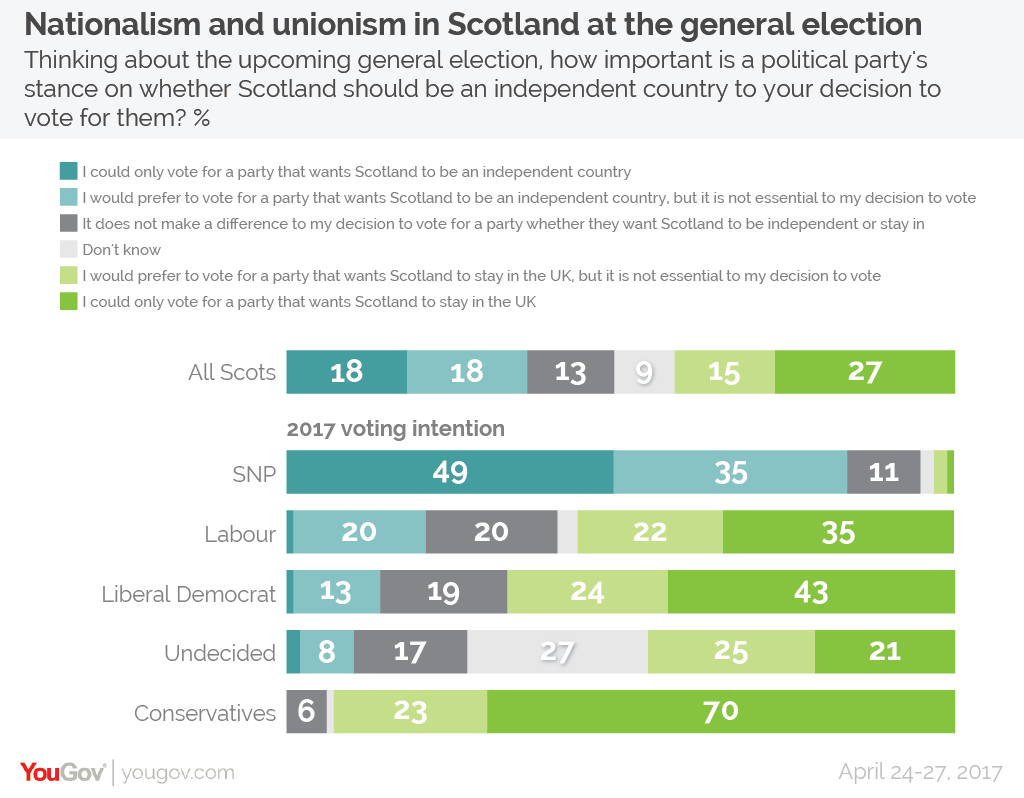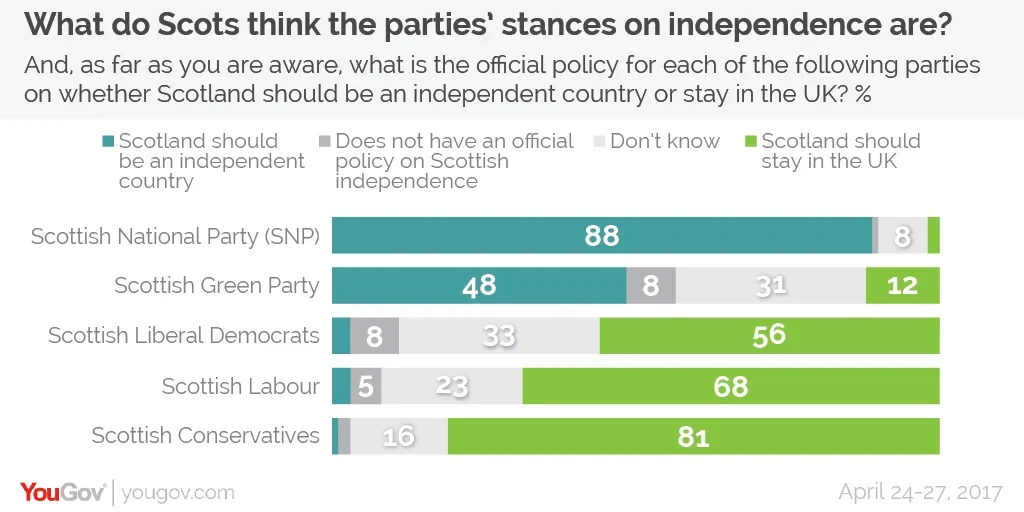Almost half of Scots (45%) say they could only vote for a party that shares their views on Scottish independence
Scottish First Minister Nicola Sturgeon is trying to put the issue of a second independence referendum at the heart of the election debate in Scotland. Speaking this week, Sturgeon argued that the decision on whether or not another referendum is held should be taken “by people in Scotland, by the Scottish people and the Scottish Parliament, and not by a Tory government at Westminster”.
For many voters in Scotland, one of the key reasons – if not the key reason – in their decision to vote for a party will be whether or not that party shares their view on Scottish independence.
New YouGov research now finds that nearly half (45%) of Scots say that they could only vote for a party that feels the same way as they do when it comes to Scottish independence. This figure is composed of 18% who would only ever vote for an independence-backing party and 27% who would only ever back a unionist party.
Additionally, a further 18% of Scots say they would prefer to vote for a party that backs independence, but that it is not essential to their vote, and 15% say the same of parties that support remaining in the UK.
Only 13% of Scots say a party’s independence stance doesn’t make a difference to their vote. A final 9% of Scots say they don’t know.
 Scotland’s constitutional status is of most concern to those planning to vote for the Conservatives or the SNP. Seven in ten (70%) Tory supporters say they could only vote for a party that wants to keep Scotland in the UK. On the other side of the debate, around half (49%) of those planning to back the SNP say that it is essential that they cast their vote for a party that supports independence.
Scotland’s constitutional status is of most concern to those planning to vote for the Conservatives or the SNP. Seven in ten (70%) Tory supporters say they could only vote for a party that wants to keep Scotland in the UK. On the other side of the debate, around half (49%) of those planning to back the SNP say that it is essential that they cast their vote for a party that supports independence.
The data suggests that those intending to vote Labour and the Lib Dems are less strongly pro-union than Conservative voters with only 35% and 43% respectively say they could only vote for unionist parties. In fact 20% of Labour supporters in Scotland and 13% of Liberal Democrats intend to back the parties in spite of the fact they would prefer to vote for parties that support independence.
Our data shows that undecided voters tend to lean much more heavily towards the unionist than the nationalist side of the debate. For approaching half (46%) it is either vital or preferable that the party they support backs staying in the UK, compared to just 10% who say the same of a party in favour of independence.
How far do Scots know where the parties actually stand on independence?
If independence is this important to so many voters then it is clearly important that they know where the Scottish parties stand on the issue. Despite this being one of the most – if not the most – pressing political issue facing Scotland, many Scots don’t know where some parties stand on the matter.
The highest levels of recognition are for the SNP, of whom 88% of Scots know they support Scottish independence, and the Scottish Conservatives, of whom 81% of Scots know they support staying in the UK.
However, recognition is lower for the remaining Scottish parties. While nearly seven in ten (68%) know that Labour supports remaining within the United Kingdom, this falls to 56% for the Scottish Liberal Democrats. Meanwhile, fewer than half (48%) of people are aware that the Scottish Green Party’s position is pro-independence.

In an election where Scotland’s constitutional status could be a big issue, this could represent a serious problem for those parties. Among Scots who say it would be preferable or essential to vote for a party that backs staying in the UK, 30% don’t know that Scottish Labour’s official policy is pro-union. That figure rises to four in ten (42%) when it comes to the Scottish Liberal Democrats. On the other side of the debate, it is a similar story for the Scottish Greens among those who would prefer or only vote for independence-backing parties with 41% not knowing that the party is pro-independence.
Photo: PA












